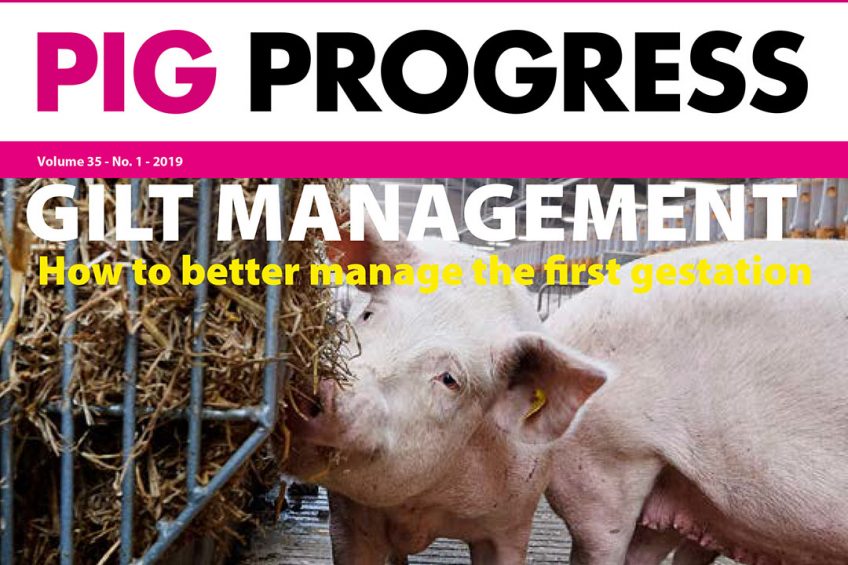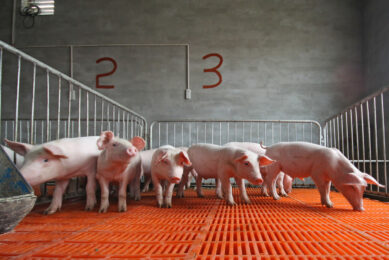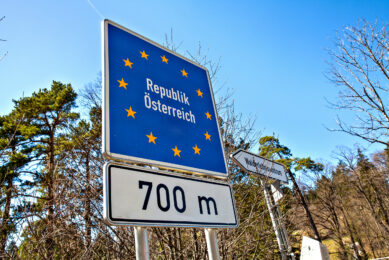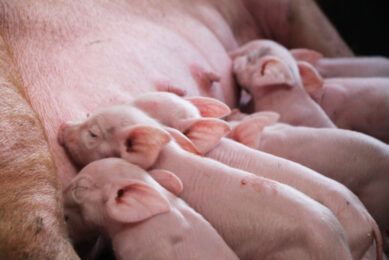Phages, Poland and pleuritis in Pig Progress 1 of 2019

The 1st magazine of 2019 is available for readers, either in print or on a tablet or laptop. The edition has a strong focus on breeding issues but there are also some unexpected topics.
Phages: An old and new technology
To start off: Phages. Not a very well-known subject in the world of animal health, but it is an animal health technology which has existed for decades. Basically it comes down to fighting bacterial infections with viruses that exclusively attack bacteria – these viruses are also known as phages. Since there were antibiotics for many years, this technology mainly thrived in Eastern Europe, but has lately received interest from western nations as well.
The article, written by Dr Pilar García Suárez and Dr Ana Rodríguez González, also touches on the use of enzybiotics – and how both technologies can be used in modern-day animal production. Page 6
Click here to access the digital magazine
Poland: Pig industry yet to revive again
Poland is this month’s country of attention in our Country Focus series. Armed with a recent country report, Pig Progress looks at the reason why the country hasn’t been living up to its potential. And how does African Swine Fever affect pork consumption in the country? Page 10
Pleuritis, pneumonia, pericarditis…
These are all diseases that can leave definite marks on a pig carcass once at the slaughterline. Recent research on specific lesions yielded that the outcome can help producers and geneticists improve pig health and welfare in the farm. Researchers from Topigs Norsvin and Wageningen University & Research delved deeper into this topic, as can be read in an article by correspondent Matthew Wedzerai on page 26.

Managing a gilt unit
Danish breeding organisation DanBred recently released a manual to help pig breeders to deal better with gilts. The 6 chapters describe every phase clearly. To get an idea, Pig Progress was allowed to publish the chapter on gestation in detail. Interested? Quickly flick to page 29 and further.
Focus on pigs in Asia
With VIV Asia 2019 right ahead of us, we had a sneak peek as to what can be expected at the next edition, to be held 13-15 March 2019 in Bangkok, Thailand. Page 13

It is no secret that the world of pig production in China is in a very rapid transition. Colleagues Kees van Dooren and Vincent ter Beek got a glimpse of that development by interviewing Dr Jackson He, CEO of the Chinese company Yingzi. The ambitious company focuses on data collection and presentation in combination with facial recognition technology. How far thave they got with that? The interview can be found on page 14.
Low manure emissions in Denmark
Pig farming in Denmark is suffering from ever-increasing regulations and rules, that is what colleague Kees van Dooren found out when visiting the farm of Jørgen Berth, near Randers, Denmark. Mr Berth developed an own system to remove manure as quickly as possible so that the air on-farm remains fresh. Page 20
More from Denmark by Kees van Dooren: Many companies in the pig business joined forces in creating the Danish Pig Academy in Herning, Denmark. This is like one permanent showroom for many different companies. This helps foreign visitors as they can get to know a lot of new technologies in one go. Page 23
Heat stress and minerals
How heat stress and performance minerals are related is explained in a contribution authored by Zinpro’s Mark Wilson. He explains in detail what happens at gut level when a pig is suffering from heat stress and how that process can be helped by the supplementation of trace minerals. Page 24-25

Columns on African Swine Fever
Both columns in this edition are related to African Swine Fever. Animal welfare expert Dr Monique Pairis-Garcia focuses on how to properly depopulate a farm in case the virus arrives on a farm (page 34), management expert John Gadd takes the reader by the hand and covers how to prevent the virus from entering in the first place (page 17).
Click here to access the digital magazine











